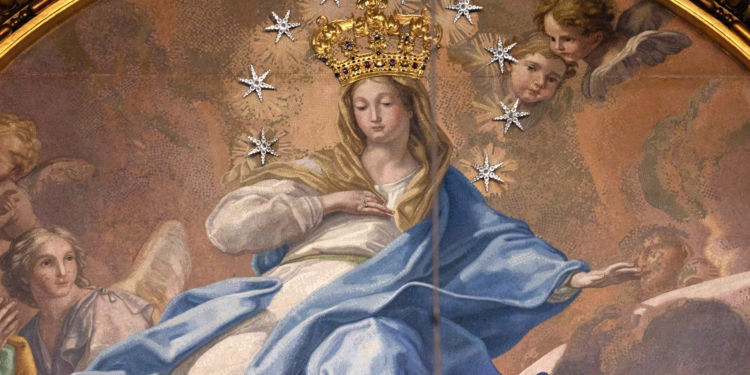During his pontificate, due to the political circumstances caused by the unification of Italy — the Risorgimento — and the loss of the Papal States, his task became extremely difficult. He is said to have faced the hard times with great wisdom and prudence. For this very reason, Pope Pius IX is recognized as one of the greatest pontiffs, forced to play a political role in times of open anticlericalism encouraged by “modernist” currents.
Pius IX’s doctrinal work involved a programmatic vision aimed at addressing the main problems and threats to both the Church and Western Christian civilization: He condemned secret societies such as Freemasonry as well as fashionable ideologies like liberalism and socialism, among others. Pius IX published the “Syllabus Errorum” (“Catalogue of Errors”), in which he warned about the errors and dangers of modernism.
This made him the initiator of the development of the social doctrine of the Church. His century was marked by the Industrial Revolution and the struggle of the working class for better conditions — issues the Church would begin to address, most notably under his successor, Pope Leo XIII.
Among the most outstanding pastoral actions or measures of Pius IX’s papacy are the reestablishment of the Catholic hierarchy in England, Holland, and Scotland; the solemn definition, on Dec. 8, 1854, of the dogma of the Immaculate Conception; the sending of missionaries to the Nordic zones of America and Europe as well as to India, Burma, China, and Japan; and the celebration of the 80th centenary of the martyrdom of the apostles Peter and Paul.
Pius IX convened the First Vatican Ecumenical Council, which began in 1869 and was suspended in October 1870 after Rome fell to the forces of Italian unification. During this council, the dogma of papal infallibility was defined. That same year Pope Pius IX declared St. Joseph patron of the Church.
Back home
After the fall of Rome and the subsequent end of the “temporal power of the pope,” Pius IX locked himself in the Vatican, declaring himself a “prisoner.” His action became an example of dignity and detachment from the temporal order for his exercise of religious freedom and firmness in the face of secular power.
Upon his death on Feb. 7, 1878, Pope Pius IX’s impressive pontificate came to an end.
This story was first published by ACI Prensa, CNA’s Spanish-language news partner. It has been translated and adapted by CNA.
Credit: Source link




